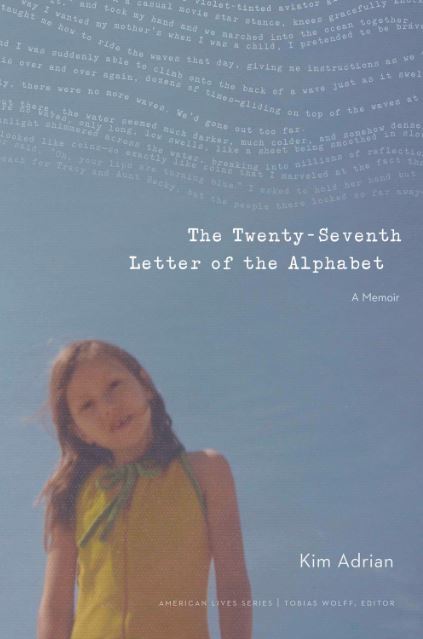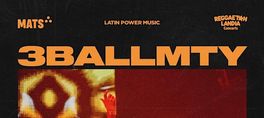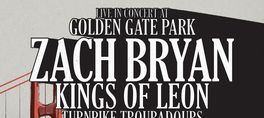Kim Adrian discusses her new memoir, The Twenty-Seventh Letter of the Alphabet with Amy Wallen.
Praise for The Twenty-Seventh Letter of the Alphabet
“A stunning merger of form and content; a remarkable portrait-becomes-self-portrait; andsomething like a master class in complicity.”—David Shields, author of Reality Hunger
“The Twenty-Seventh Letter of the Alphabet is a revelation. By structuring the book in the unconventional form of a glossary, Adrian allows the reader into the very intimate mechanics of her memory. Each page I read pulled me deeper under the book’s peculiar spell. Through Adrian’s rigorous attention to detail I found myself involuntarily drawn into her perspective, both as a child and a grown woman, hungry to make sense of this troubled family and this vibrantly unstable mother.”—Alysia Abbott, author of Fairyland: A Memoir of My Father
“This is desperately serious work, an exacting memoir that excavates, with compassion for all involved, the harrowingly repetitive patterns of abuse as well as moments of something like hope, crushable and delicate, thwarted, and yet renewable. An agonized, beautiful, unflinching account.” —Lee Upton, author of Visitations: Stories
About The Twenty-Seventh Letter of the Alphabet
Clear-sighted, darkly comic, and tender, The Twenty-Seventh Letter of the Alphabet is about a daughter's struggle to face the Medusa of generational trauma without turning to stone. Growing up in the New Jersey suburbs of the 1970s and 1980s in a family warped by mental illness, addiction, and violence, Kim Adrian spent her childhood ducking for cover from an alcoholic father prone to terrifying acts of rage and trudging through a fog of confusion with her mother, a suicidal incest survivor hooked on prescription drugs. Family memories were buried--even as they were formed--and truth was obscured by lies and fantasies.
In The Twenty-Seventh Letter of the Alphabet Adrian tries to make peace with this troubled past by cataloguing memories, anecdotes, and bits of family lore in the form of a glossary. But within this strategic reckoning of the past, the unruly present carves an unpredictable path as Adrian's aging mother plunges into ever-deeper realms of drug-fueled paranoia. Ultimately, the glossary's imposed order serves less to organize emotional chaos than to expose difficult but necessary truths, such as the fact that some problems simply can't be solved, and that loving someone doesn't necessarily mean saving them.
show less
Praise for The Twenty-Seventh Letter of the Alphabet
“A stunning merger of form and content; a remarkable portrait-becomes-self-portrait; andsomething like a master class in complicity.”—David Shields, author of Reality Hunger
“The Twenty-Seventh Letter of the Alphabet is a revelation. By structuring the book in the unconventional form of a glossary, Adrian allows the reader into the very intimate mechanics of her memory. Each page I read pulled me deeper under the book’s peculiar spell. Through Adrian’s rigorous attention to detail I found myself involuntarily drawn into her perspective, both as a child and a grown woman, hungry to make sense of this troubled family and this vibrantly unstable mother.”—Alysia Abbott, author of Fairyland: A Memoir of My Father
“This is desperately serious work, an exacting memoir that excavates, with compassion for all involved, the harrowingly repetitive patterns of abuse as well as moments of something like hope, crushable and delicate, thwarted, and yet renewable. An agonized, beautiful, unflinching account.” —Lee Upton, author of Visitations: Stories
About The Twenty-Seventh Letter of the Alphabet
Clear-sighted, darkly comic, and tender, The Twenty-Seventh Letter of the Alphabet is about a daughter's struggle to face the Medusa of generational trauma without turning to stone. Growing up in the New Jersey suburbs of the 1970s and 1980s in a family warped by mental illness, addiction, and violence, Kim Adrian spent her childhood ducking for cover from an alcoholic father prone to terrifying acts of rage and trudging through a fog of confusion with her mother, a suicidal incest survivor hooked on prescription drugs. Family memories were buried--even as they were formed--and truth was obscured by lies and fantasies.
In The Twenty-Seventh Letter of the Alphabet Adrian tries to make peace with this troubled past by cataloguing memories, anecdotes, and bits of family lore in the form of a glossary. But within this strategic reckoning of the past, the unruly present carves an unpredictable path as Adrian's aging mother plunges into ever-deeper realms of drug-fueled paranoia. Ultimately, the glossary's imposed order serves less to organize emotional chaos than to expose difficult but necessary truths, such as the fact that some problems simply can't be solved, and that loving someone doesn't necessarily mean saving them.
Kim Adrian discusses her new memoir, The Twenty-Seventh Letter of the Alphabet with Amy Wallen.
Praise for The Twenty-Seventh Letter of the Alphabet
“A stunning merger of form and content; a remarkable portrait-becomes-self-portrait; andsomething like a master class in complicity.”—David Shields, author of Reality Hunger
“The Twenty-Seventh Letter of the Alphabet is a revelation. By structuring the book in the unconventional form of a glossary, Adrian allows the reader into the very intimate mechanics of her memory. Each page I read pulled me deeper under the book’s peculiar spell. Through Adrian’s rigorous attention to detail I found myself involuntarily drawn into her perspective, both as a child and a grown woman, hungry to make sense of this troubled family and this vibrantly unstable mother.”—Alysia Abbott, author of Fairyland: A Memoir of My Father
“This is desperately serious work, an exacting memoir that excavates, with compassion for all involved, the harrowingly repetitive patterns of abuse as well as moments of something like hope, crushable and delicate, thwarted, and yet renewable. An agonized, beautiful, unflinching account.” —Lee Upton, author of Visitations: Stories
About The Twenty-Seventh Letter of the Alphabet
Clear-sighted, darkly comic, and tender, The Twenty-Seventh Letter of the Alphabet is about a daughter's struggle to face the Medusa of generational trauma without turning to stone. Growing up in the New Jersey suburbs of the 1970s and 1980s in a family warped by mental illness, addiction, and violence, Kim Adrian spent her childhood ducking for cover from an alcoholic father prone to terrifying acts of rage and trudging through a fog of confusion with her mother, a suicidal incest survivor hooked on prescription drugs. Family memories were buried--even as they were formed--and truth was obscured by lies and fantasies.
In The Twenty-Seventh Letter of the Alphabet Adrian tries to make peace with this troubled past by cataloguing memories, anecdotes, and bits of family lore in the form of a glossary. But within this strategic reckoning of the past, the unruly present carves an unpredictable path as Adrian's aging mother plunges into ever-deeper realms of drug-fueled paranoia. Ultimately, the glossary's imposed order serves less to organize emotional chaos than to expose difficult but necessary truths, such as the fact that some problems simply can't be solved, and that loving someone doesn't necessarily mean saving them.
read more
Praise for The Twenty-Seventh Letter of the Alphabet
“A stunning merger of form and content; a remarkable portrait-becomes-self-portrait; andsomething like a master class in complicity.”—David Shields, author of Reality Hunger
“The Twenty-Seventh Letter of the Alphabet is a revelation. By structuring the book in the unconventional form of a glossary, Adrian allows the reader into the very intimate mechanics of her memory. Each page I read pulled me deeper under the book’s peculiar spell. Through Adrian’s rigorous attention to detail I found myself involuntarily drawn into her perspective, both as a child and a grown woman, hungry to make sense of this troubled family and this vibrantly unstable mother.”—Alysia Abbott, author of Fairyland: A Memoir of My Father
“This is desperately serious work, an exacting memoir that excavates, with compassion for all involved, the harrowingly repetitive patterns of abuse as well as moments of something like hope, crushable and delicate, thwarted, and yet renewable. An agonized, beautiful, unflinching account.” —Lee Upton, author of Visitations: Stories
About The Twenty-Seventh Letter of the Alphabet
Clear-sighted, darkly comic, and tender, The Twenty-Seventh Letter of the Alphabet is about a daughter's struggle to face the Medusa of generational trauma without turning to stone. Growing up in the New Jersey suburbs of the 1970s and 1980s in a family warped by mental illness, addiction, and violence, Kim Adrian spent her childhood ducking for cover from an alcoholic father prone to terrifying acts of rage and trudging through a fog of confusion with her mother, a suicidal incest survivor hooked on prescription drugs. Family memories were buried--even as they were formed--and truth was obscured by lies and fantasies.
In The Twenty-Seventh Letter of the Alphabet Adrian tries to make peace with this troubled past by cataloguing memories, anecdotes, and bits of family lore in the form of a glossary. But within this strategic reckoning of the past, the unruly present carves an unpredictable path as Adrian's aging mother plunges into ever-deeper realms of drug-fueled paranoia. Ultimately, the glossary's imposed order serves less to organize emotional chaos than to expose difficult but necessary truths, such as the fact that some problems simply can't be solved, and that loving someone doesn't necessarily mean saving them.
show less
Date/Times:
1231 9th Avenue, San Francisco, CA 94111
The Best Events
Every Week in Your Inbox
From Our Sponsors
UPCOMING EVENTS
Great suggestion! We'll be in touch.
Event reviewed successfully.









